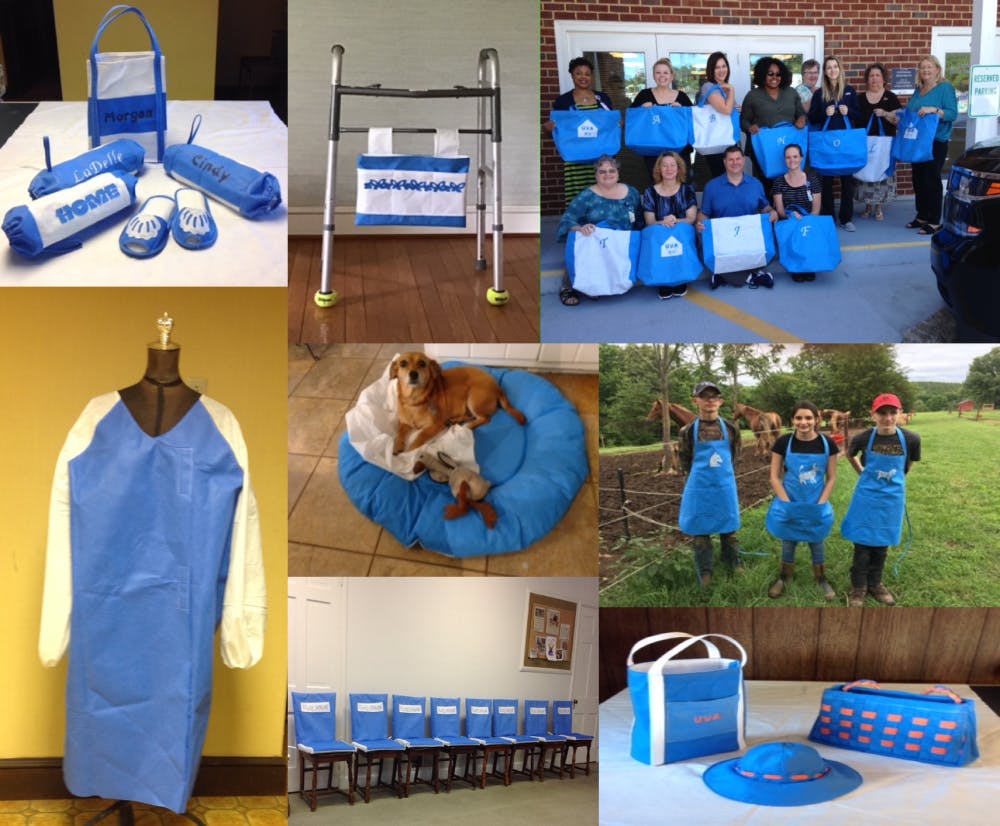MERCI, or Medical Equipment Recovery of Clean Inventory, is a program at the University Hospital that collects and donates clean medical supplies and gently used lab equipment at no cost to the University and other organizations.
According to MERCI, 30 to 50 percent of waste generated by hospitals is mistakenly treated as regulated medical waste, which is considered to be biohazardous and potentially infectious. A major source of this waste comes from leftovers from surgical packs — prepackaged and pre-sterilized supplies for a given type of surgery that, once opened, are often treated as harmful waste even if unused. The supplies end up incinerated, costing the hospital money and generating dangerous emissions.
In 1991, management at the University Hospital asked operating room nurse Helen French to figure out how to curb this issue of spending so much money to dispose of the medical waste. French recalled the situation to be exorbitant and not economical.
“It was just excessive,” French said. “I mean, it was excessive. They were really losing millions of dollars per year on all this.”
According to French, in actuality, approximately 85 percent of the supplies being thrown away from surgical operating rooms were not regulated medical waste.
After a few months of gathering data on the types and amounts of waste generated and meeting with physicians and researchers to determine safety and feasibility, French came up with the concept of MERCI. Through the program, clean, uncontaminated supplies from the operating room could be saved, organized and then donated to someone else.
“Why throw away anything that somebody else can use?” French said.
Every Thursday, donations are dropped off at MERCI’s location on the ground floor of the Primary Care Center at the University Hospital. Volunteers receive and sort newly-donated items, while physicians, researchers and anyone else from the community can pick up and take whatever they can use.
MERCI mostly receives surgical supplies from the operating room, but they’ve also received larger medical items like walkers and wheelchairs as well as general commodities such as baby clothes and skis. Although the majority of the donations come from the University Hospital, others have starting pouring in from the community, including neighboring hospitals like Sentara Martha Jefferson Hospital.
Sometimes, the volunteers think of alternative methods to handle the sheer volume of contributions they receive. Such was the case two years ago, when donations of blue surgical wrap began to pile up at MERCI.
According to volunteer Peggy Anderson, the question of what to do with the excessive amounts of blue wrap used in surgery had remained unsolved, until volunteer Gail Sullivan had the idea to turn the wrap into tote bags.
Over the last two years, Anderson and Sullivan have sewn hundreds of bright blue tote bags that are then donated to the community and mission groups through MERCI. Their use for the wrap has extended to a variety of other goods, including aprons, dog beds, backpacks, yoga bags and hats.
MERCI is also used extensively by research labs at the University, which can donate unused lab supplies or equipment instead of sending them to the dump. Other groups can then take the materials that they need free of charge — keeping useable supplies out of landfills and saving money on research budgets.
“A research lab might have to cancel a research project, or they've finished a research project and they have all this stuff leftover, it's bar coded,” MERCI volunteer Cindy Thacker said. “They can't send it back. They give it to us, the [other] labs take it [and] use it.”
Linda Varin, a volunteer with MERCI since 2006, said that in the year 2017 alone, 13,000 pounds of supplies were taken and reused by members of the University community. MERCI donates to a wide range of local and international charitable groups, including several local animal shelters, Louisa Parks and Recreation Department and mission groups serving Malawi, Congo, Kenya, Guatemala, Bolivia, Uganda and Ghana.
The Wildlife Center, a hospital for native wildlife, in Waynesboro is also one of these recipients. The Wildlife Center treats over 2,700 injured or orphaned wildlife annually and donations from MERCI contribute to their work.
According to Ernesto Dominguez, the Wildlife Center’s hospital director, MERCI donates about $60,000 per year in in-kind donations. Many of these donations typically include standard medical equipment like gauze or fluids and occasionally larger medical equipment like an ultrasound machine.
“Because of donors like them, we can give high quality medicine to injured and orphaned wildlife here at the Wildlife Center,” Dominguez said. “And also because we are mainly a teaching hospital, we can improve our training program for veterinary students all around the country.”
In almost three decades since its founding, MERCI has diverted countless tons of materials from landfills and sent medical supplies all over the world.
“Helen left a legacy,” Thacker said. “I don't know that she ever really got the credit she deserved, but what she started has just been amazing and it's benefited so many people and it's been sustainable.”







